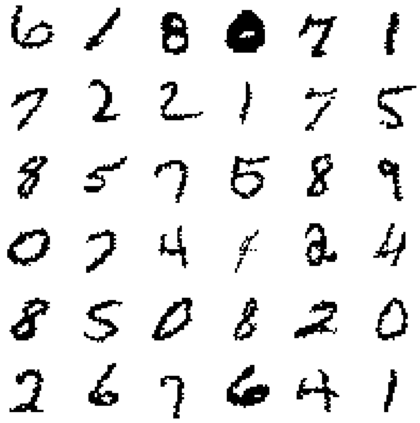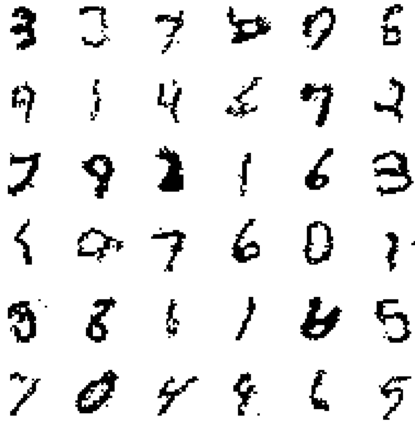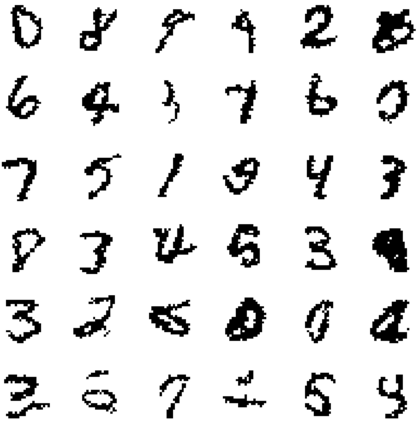Modeling the joint distribution of high-dimensional data is a central task in unsupervised machine learning. In recent years, many interests have been attracted to developing learning models based on tensor networks, which have advantages of theoretical understandings of the expressive power using entanglement properties, and as a bridge connecting the classical computation and the quantum computation. Despite the great potential, however, existing tensor-network-based unsupervised models only work as a proof of principle, as their performances are much worse than the standard models such as the restricted Boltzmann machines and neural networks. In this work, we present the Autoregressive Matrix Product States (AMPS), a tensor-network-based model combining the matrix product states from quantum many-body physics and the autoregressive models from machine learning. The model enjoys exact calculation of normalized probability and unbiased sampling, as well as a clear theoretical understanding of expressive power. We demonstrate the performance of our model using two applications, the generative modeling on synthetic and real-world data, and the reinforcement learning in statistical physics. Using extensive numerical experiments, we show that the proposed model significantly outperforms the existing tensor-network-based models and the restricted Boltzmann machines, and is competitive with the state-of-the-art neural network models.
翻译:建模高维数据的共同分布是不受监督的机器学习的一项核心任务。近年来,许多兴趣被吸引到开发基于强力网络的学习模型上,这些模型具有利用缠绕特性对表达力进行理论理解的优势,并且是连接古典计算和量计算的一个桥梁。尽管存在巨大的潜力,但现有的以强力网络为基础的、不受监督的模型只能作为原则的证明,因为它们的性能比标准模型,如限制的波尔茨曼机器和神经网络要差得多。在这项工作中,我们介绍了自动反向母体产品国家(AMPS),这是一种以数式网络为基础的模型,它把来自量子体物理学的矩阵产品状态和机器学习的自动反向模型结合起来。该模型精确地计算了正常概率和不偏重的抽样,以及清晰的对表达力的理论理解。我们用两种应用,即合成和现实世界数据的基因化模型以及统计物理学的强化学习来展示我们的模型的性能。我们用广泛的数字实验来显示,我们展示了拟议的模型是大大超越了以压式模型和现有压式模型。







